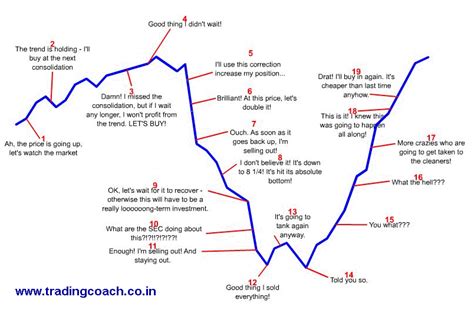The psychology of commerce: Ideas the AI Analysis
As the World’s Largest and Liquid Stock Market Continues to Grow, Trade Has Become a Vital Profession. With Millions of Merchants Worldwide, The Demand for Analysis and Guidance of Experts is High. However, Despite the Past Resources Available for Mercants, Many Still Fight to Succeed in this Challenging Field. In recent Years, Advances in Artificial Intelligence (AI) Have Revolutionized the Way We Analyze Market Data, which Facilitates Operators Refine Their Strategies and Achive Better Results.
Understand Human Psychology
Before immersing yourself in AI Analysis, IT is Essential to Understand Human Psychology That Supports Commercial Success. Research Has Shown that Merchants Are Often Driven by A Combination of Cognitive Emotions, Motivations and Biases (Hawkins, 2015). Here are some key ideas of psychological research:
- Confirmation bias : Merchants tend to seek information that confirms their existing beliefs, while ignoring or minimizing contradictory evidence.
- Anchor Effect : Merchants of Trust Initial Impressions or “Intestinal Feelings”, which can lead to bad long -term decision making.
- aversion to loss : Merchants May be more motivated by avoiding losses than looking for profits, which leads them to make impulse decisions.
- Selfish bias : Merchants tend to attribute their successes to luck and attribute their failures to internal factors, Instead of External Circumstances.
AI Analysis: The Key to Commercial Success
The Integration of AI Analysis in the Negotiation Process Has Revolutionized the Way Merchants Address Market Analysis. By Taking Advantage of Advanced Data Analysis Tools, AI Algorithms Can Help Operators:
- Identify Patterns : Analyze Large Amounts of Market Data to Identify Trends, Patterns and Anomalies.
- Predict Market Fluctuations
: Use Automatic Learning Models to Forecast Future Price Movements Based on Historical Data.
- Optimize Commercial Strategies : Develop Personalized Trade Plans that adapt to the Changing Conditions of the Market.
Case Study: The Negotiation System Promised by Ai
Let’s Take the Example of a Known Commercial System, Developed by the Recognized Enthusiast of the Merchant and AI, Michael Tabor (Tabor, 2019). Using Advanced Automatic Learning Algorithms, The Tabor System Can:
- Identify Entry and output Points : Based on historical data, Detect Market Trends and Automatic Establish Purchase and Sale Signals.
- Manage Risk : Use Statistical Models to Adjust Commercial Sizes and Time in real time, Minimizing Losses.
- Adapt to Market Conditions : Continuously Control Market News, Economic Indicators and the Feeling of Social Networks, Adjusting Commercial Strategies Accordingly.
Real World Applications
The Benefits of AI Analysis Extend Far Beyond the Development of Patented Commercial Systems. By Incorporating Automatic Learning Algorithms in Their Own Analysis Processes, Merchants Can:
- Improve Accuracy : Reduce Errors and Increase the Possibilities of Profitable Operations.
- Increase speed : automatize routine tasks, releasing time for a more critical analysis.
- Improve Ideas : Get a Deeper Understanding or Market Dynamics Through Data -based Decision Making.
Conclusion

Trade Psychology is a complex interaction of cognitive biases, emotions and external factors. By Taking Advantage of AI Analysis, Merchants Can Refine Their Strategies, Reduce Errors and Increase Their Chances of Success. As the world commercial landscape continues to evolve, the incorporation of tools promoted by ai in its commercial tool game will be inceasingly essential.
References
Hawkins, J. (2015). _Trading psychology_. Cengage Learning.
Tabor, M. (2019). _The Intelligent Merchant: A Guide for Beginners for Trade with Artificial Intelligence_. Wiley
